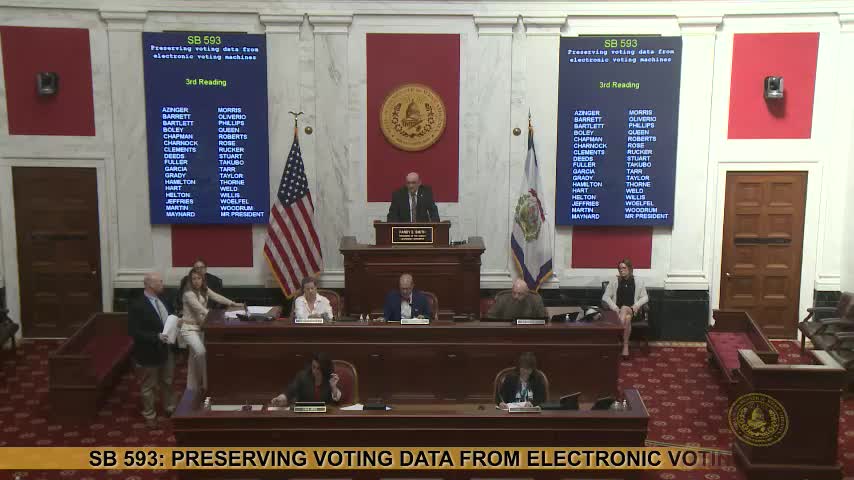Senate approves Joel Archer substance abuse intervention act expanding involuntary hospitalization criteria
Get AI-powered insights, summaries, and transcripts
Subscribe
Summary
The West Virginia Senate passed the Joel Archer substance abuse intervention act, which expands grounds for involuntary hospitalization to include certain substance use disorder cases and includes provisions for restoration of firearm rights through expungement; vote was 33-0-1.
CHARLESTON, W.Va. — The West Virginia Senate on March 28 passed the Joel Archer substance abuse intervention act, creating a pathway for involuntary hospitalization in defined circumstances involving substance use disorder and including an expungement provision for restoration of firearm possession rights.
Supporters said the bill gives families an additional tool to obtain care for loved ones who have lost control because of substance use. The measure passed on third reading by a recorded tally of 33 yays, 0 nays and 1 absent, and the clerk was instructed to transmit the action to the House.
The bill, described on the chamber floor as the Joel Archer substance abuse intervention act, expands the statutory basis for involuntary hospitalization to apply when: (1) the individual has a substance use disorder, (2) has lost the power of self-control with respect to substance use, (3) is in need of substance abuse services, and (4) has impaired judgment to the point of being unlikely to voluntarily obtain treatment. "This bill creates the Joel Archer substance abuse intervention act and expands the existing basis for involuntary hospitalization to include instances where ... the individual has a substance use disorder," the sponsor said on the floor, urging passage.
Senators who spoke in favor framed the bill as a narrowly tailored, last-resort intervention for people at acute risk. "This bill gives those families some peace and some hope and some ability to at least try to save that person's life," the Senator from Fayette said during debate. The Junior Senator from the Eighth added that the bill "provides those families with a tool of last resort, a tool of last resort to save a life." Those supporters also noted testimony in committee that the West Virginia Supreme Court could promulgate procedural rules to implement the statute.
The floor explanation also said the bill includes an incentive provision to restore firearm possession rights for some people through an expungement process, though the legislation leaves implementation steps to applicable agencies and courts. The sponsor noted that the measure was motivated by the death of Joel Archer and framed it as addressing broader statewide needs.
No roll-call list of individual yes/no votes was read into the record; the presiding officer announced the final tally and declared the bill passed. The clerk will communicate the action to the House.
The floor debate and votes took place during the Senate's March 28 session. The bill now proceeds to the House for further action as required by legislative process.
